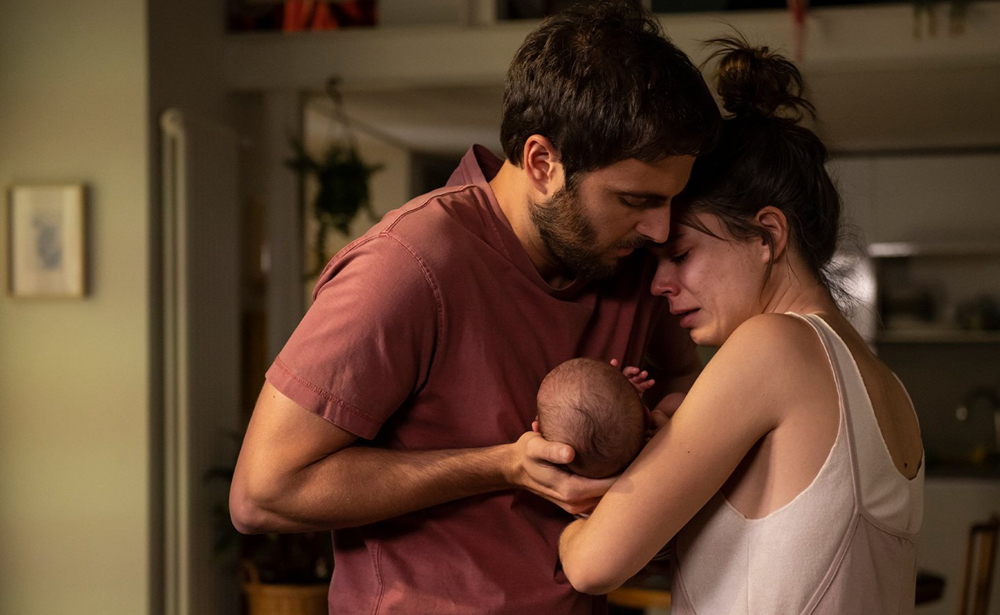In retrospect, it’s understandable that Amaia (Laia Costa) isn’t the one to ask about having the keys to her apartment, standing on the street in the opening scene of “Lullaby” holding her newborn daughter as her parents Begona (Susi Sánchez) and Koldo (Ramón Barea) unload the car. Her partner Javi is nowhere to be found, a preview of coming attractions in Alauda Ruiz De Azúa’s feature debut, and as Amaia finds herself time and again, she may not be far from home, but to get inside feels insurmountable.
Intriguing from this very first scene, “Lullaby” would seem to begin at a moment most other narratives would skip over as Begona and Koldo stick around for a few days after the birth of their granddaughter to ease Amaia’s transition into motherhood, which is off to a far more difficult start than she could expect. Not receptive to sleeping in a crib and not taking to her mother’s breast to feed, the infant Jone cries all the time and Amaia is made to feel the burden to take care of her is entirely hers, a self-fulfilling notion as her parents go back to their countryside home at the planned end of their stay and Javi decides to take a three-week gig in Valencia working as a lighting designer to pay the rent. Amaia would love to return to work too, handing off her clients to others as she feels Jone needs her full attention at all times and as Javi’s time away turns into months, she leaves Madrid to move back in with her parents where she may have even less time to herself, tending to all their needs.
The safest place to be on the surface for Amaia becomes the most dangerous, an electrifying notion for the character study that constantly tip-toes around the somber drama it could be. From early on, “Lullaby” feels alive with crisp, sharply composed cinematography and a sprightly color palette, imploring one to be engaged with the world as Amaia sits in frustration at not being able to be a part of it. Attempts at making conversation with other mothers at the local park are fruitless and a restlessness that surely set in once before when living with her parents starts to take root again, though beyond her responsibilities towards her child, her mother’s health becomes a concern as well.
The psychic toll of all this isn’t an easy thing to dramatize even without Amaia downplaying the effect it’s having on her, but between a strong cast and Ruiz De Azúa’s insightful script, the small inconveniences that remind Amaia of her life before have all the weight to convey what an all-consuming feeling of isolation she’s experiencing while life moves on, with or without her. Costa, who made her breakthrough carrying the one-take wonder “Victoria” on her back, remains someone it’s difficult to take your eyes off of, and as Amaia, she never appears intimidated for as clearly overwhelmed as she is, immediately earning sympathy even if she’d be the last to ask for it. “Lullaby” exhibits a narrative control that eludes its main character, even as it studiously resists more obvious story beats in favor of the messier middle where decisions are less clear cut to make yet far more interesting to explore.
“Lullaby” will screen once more at the Seattle Film Festival on April 24th at 5 pm at the SIFF Cinema Uptown. It is also available to stream via the SIFF app through the end of the festival on April 24th.




